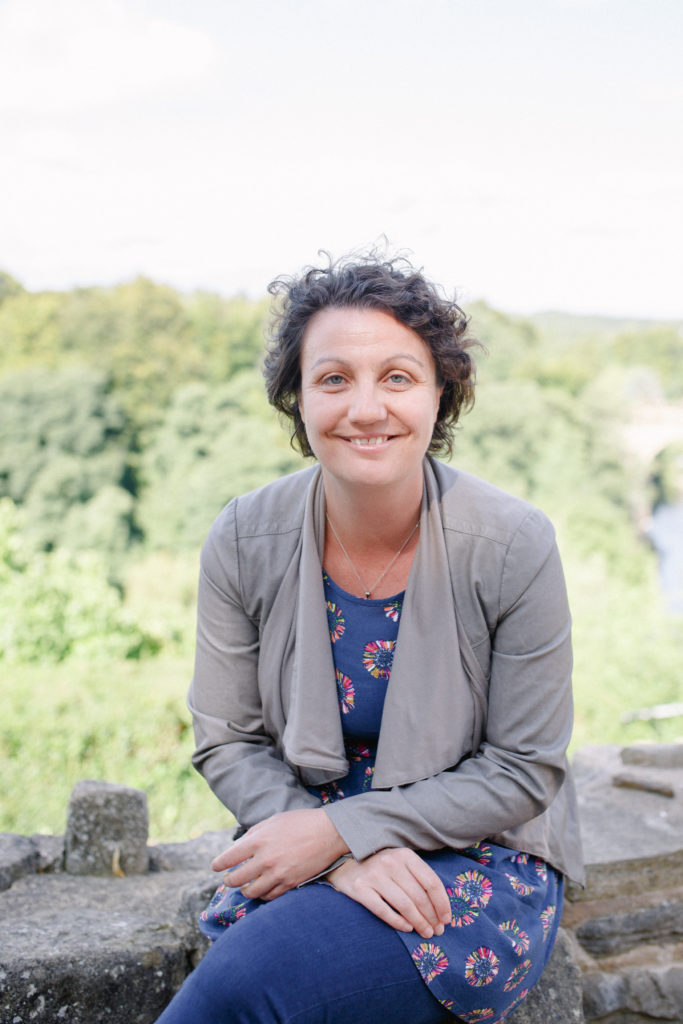
THE Daily Bread rises again as the latest free Podbean podcast from Green Hammerton company Badapple Theatre.
Glaswegian actor, clown and raconteur Colin Moncrieff reprises his 2014 stage performance in artistic director Kate Bramley’s comedy about a master baker who is the talk of the tiny village of Bottledale, thanks to his sumptuous sponges and beautiful buns, this time giving a relaxed reading from home, accompanied by songs by Sony Award-winning singer-songwriter Jez Lowe.
Go to badappletheatreonyourdesktop.podbean.com to discover whether the baker’s cheery façade hides a dark secret. How come his name is so uncannily similar to that of disgraced media magnate August de Ville, who hid the truth behind the Bottledale bank crash?
For the villagers, is it a case of better the de Ville you don’t know, or will the truth come out, as Bramley adds more and more ingredients to her play recipe, ranging from a Women’s Institute narrator and a dour Yorkshireman to a Nigella Awesome send-up, a Mafia boss and a lumbering thug?
When toured in 2014, The Daily Bread was delivered to each village doorstep with “live baking” in a working oven. The one-man show was bread and butter to Moncrieff, who once worked with a French baker in New York and later ran his own cake business in Scotland.
Moncrieff’s prowess with flour, water, salt and yeast had come to light as he toured with Badapple in Laurel & Charlie, prompting writer-director Bramley to see the potential in writing a play that would combine all his skills.
What ensued was a nimble show of Machiavellian subterfuge, comedy, multiple role-playing, physical clowning as dextrous as Keaton and Chaplin, the aforementioned live baking, banking, and “a little bit of politics”, as Ben Elton once was wont to say too often.
A second Badapple show, audience favourite The Carlton Colliers, is available for free too at badappletheatreonyourdesktop.podbean.com. Bramley’s comic tale of an amateur football team saved from an eternal losing streak by a stroke of allotment magic is read from home by Thomas Frere, Robert Wade and Stephanie Hutchinson, again complemented by songs by Lowe.

“This is a story about a village, a story about love, optimism and yes, sometimes a story about football,” says Bramley.
She sets that story in Carlton Flatts, a northern place where “nobody notices you’re doing nothing, ’cause there’s nothing for anyone to do” since the village pit closed: a stasis captured in Lowe’s evocative folk music.
“But you have to dream, don’t you,” reckons the playwright, who gives the dreamer role, the escape route, to Jemmy, the sharp-shooter of the hapless Carlton Colliers football team, whose quality left foot could land him a contract with a League side. First, however, he must lead the Colliers out of trouble, Roy Of The Rovers style, while keeping both feet out of his mouth in the presence of Nina.
Frank, no-nonsense, ever efficient, she hates football but doggedly runs her Zumba classes and hopes her bit-part as a dancer on Coronation Street could be her ticket to bigger opportunities elsewhere.
Meanwhile, taciturn Chris has withdrawn to a barge but when he is left an allotment by a man to whom he has not spoken for 15 years, change beckons.
In Bramley’s head, The Carlton Colliers was always a love story. “Whether the love affairs with friends, football or hometown ever work out quite the way you expect is another story – but the love remains, just the same,” she says.
Without giving the plot away, the world does alter for each of her protagonists in a play where they bloom as much as the allotment at the back of the football pitch does.
Although the allotment is sited on Carlton Roadends, as one road ends, new paths begin, poetically symbolised by the presence of a plethora of parrots in Bramley’s storyline.
So, sit back at home and enjoy the nuggety northern humour, the borrowed football sayings – courtesy of the likes of late Liverpool gaffer Bill Shankly – and love in its myriad forms in this hymn to village life.
